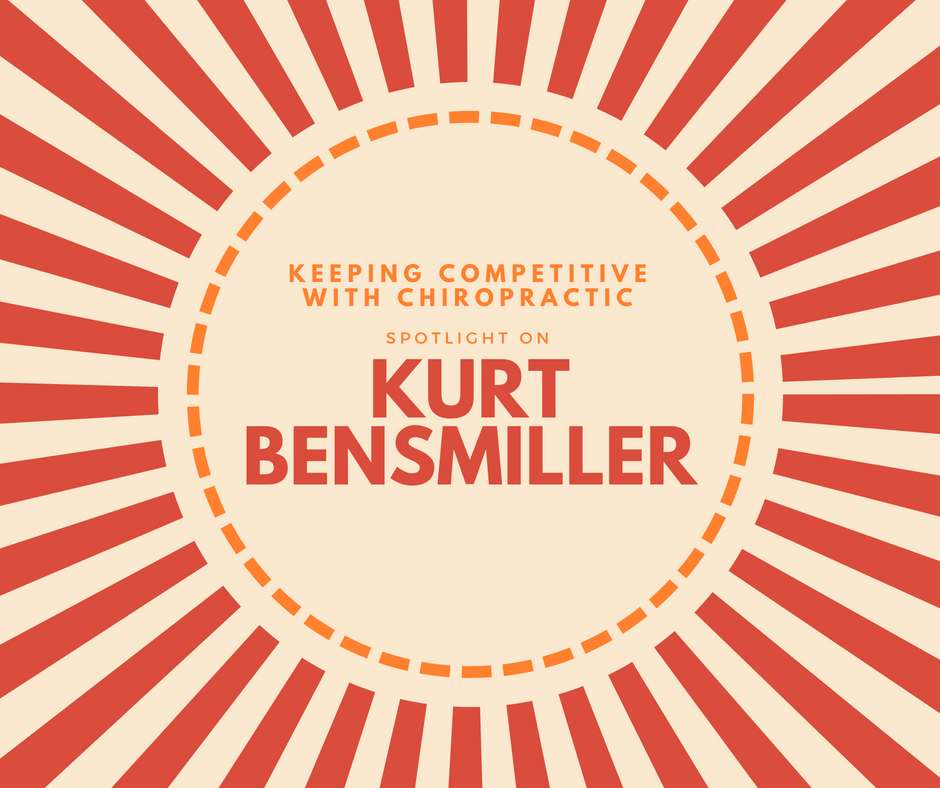Introducing the defending WPCA Pro Tour World Champion
It may be no surprise that professional athletes include chiropractic treatments in their busy lives to keep in tip-top competition shape. As sponsors of this year’s World Professional Chuckwagon Association (WPCA) Pro Tour, we had the opportunity to connect with the defending WPCA Pro Tour World Champion, Kurt Bensmiller and learn a little about how and why he incorporates chiropractic care in professional chuckwagon racing.
Kurt Bensmiller has been racing chuckwagons for more years than he hasn’t. A successful chuckwagon driver, Bensmiller just turned 35 and he’s been racing for 18 years now. Although the racing season is a relatively short four months, preparation starts early.
“Training begins late-winter or early-spring,” Bensmiller tells us; nobody grabs a horse, hitches it to a wagon and goes out. “We do a lot of work getting ourselves and our animals ready. Just like hockey, you practice and train, and hopefully we’re all ready to go throughout the season.”
Chiropractic Care in a Busy Season
Once the season starts, things really pick up. So, where does chiropractic treatment fall into his and other drivers’ busy routines?
“Teams have chiropractors at the venues across the province,” explains Bensmiller. “During our really busy parts of the season, teams have chiropractors for themselves and their horses going night and day.”
“I don’t know too many drivers that haven’t gone for an adjustment. My main outrider was just in my trailer telling me he got adjusted before our latest race.”
Professional chuckwagon racing doesn’t come without it’s bumps, bruises, and breaks and chiropractic care is a valuable tool that helps address these injuries. Bensmiller believes chiropractic treatment is vital to remaining competitive on the circuit.
“Shoulders, hips and knees are big issues in the sport. Of course, the back too. If you’re not lined up properly, you can really hurt yourself. The horses will pull on the reins like they usually do, whether you’re injured or not.” Bensmiller says. “You can’t let injuries slide, hoping it gets better. If things get out of whack or you get knots in your back, it can be difficult to even walk out from the stables. If you’re not aligned right, driving can be a very tough event to compete in. I wouldn’t be able to do it.”
Keeping the Team in Competitive Shape
While Bensmiller is a ferocious competitor on the track, proper chiropractic care factors into his everyday life as well.
“Getting chiropractic treatment isn’t isolated to the racing season – we work with the animals year-round. Treatments help with work at home in the yard, feeding the animals, going to the grainery et cetera. Chiropractors know that when something is out – if you’re not right, life can be tough.”
Bensmiller even provides care from an animal chiropractor to his equine athletes, “All of my horses receive chiropractic treatment as well. I have horses that receive regular adjustments and others just like humans, only need an adjustment from time to time.”
The WPCA Pro Tour kicked off at the end of May in Grande Prairie and winds its way through the prairies and western British Columbia through late-August, when it wraps up in Rocky Mountain House. To learn more about the tour, its teams and the schedule visit the website to keep up to date.
If it hurts, see a chiropractor.
Whether you’re a competitive chuckwagon driver or an enthusiastic fan in the stands, it’s important to listen to your body when it starts to hurt. If your pain hasn’t subsided after a few days, seek advice from a chiropractor.
Chiropractors are highly educated and specially trained musculoskeletal experts. Your chiropractor can also give you nutritional advice and whole-body wellness strategies in conjunction with your chiropractic treatment. Consult with your chiropractor or find one near you.

